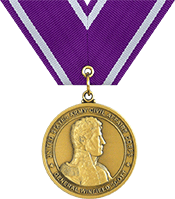Book Review: Culture Hacks: Deciphering Differences in American, Chinese, and Japanese Thinking
- Eunomia Journal
- Jan 28, 2022
- 3 min read
Reviewed by Patrick M. Foley

War is the ultimate form of culture clash. Thus, to be victorious in war, or to avoid it, understanding the adversary's culture is a valuable endeavor. In Asia, cultural misperceptions pave the road to conflict. Culture Hacks by Richard Conrad provides a unique and valuable perspective into the methods of thought that prevail in two nations critical to the United States' national security. With near-daily headlines proclaiming the expansionist activities of the People's Republic of China, U.S. military leaders and policy advisors alike seek to bolster their understanding of the potentially violent competition we find ourselves hurling toward. Moreover, improving our appreciation of the practices and logic of our closest allies is just as crucial as understanding our adversary. Richard Conrad's ongoing decade and a half immersion in Japanese and Chinese societies illuminates the influence of culture and history on the decision-making processes of business and government leaders of these two East Asian nations. With little imagination, the reader can apply this insight to the more significant strategic methods employed in the realm of national security and defense planning.
Conrad's assessments of Japanese and Chinese business practices explain the root drivers of reasoning and logic within each culture. Using personal experiences bolstered by more significant national trends, Conrad provides a well-rounded account of how three forms of thinking, linear, lateral, or intuitive, differentiate American, Chinese, and Japanese cultures. Although this is by no means a groundbreaking revelation, the way Conrad represents the distinctive thinking methods provides greater context to the idea that cognitive processes have cultural foundations.[1] He expands on this difference by characterizing each culture as literal, abstract, or a hybrid. Finally, the differentiation on the view of time as relative or absolute completes the framing of the critical cultural differences. This framework lays the foundation for his central theme that a lack of understanding of how these differences result in approaches to problem-solving, negotiations, and general worldview exacerbates much of the current tensions in East Asia.
While readers will likely find the author's admission to mastering kowtowing distasteful, the rich cultural perspective and historical insight make the read worthwhile. As Sun Tsu advised, "If you know the enemy and know yourself, you need not fear the result of a hundred battles."[2] Military leaders operating in areas short of armed conflict and with limited previous experience in East Asian affairs would be wise to add the perspectives of Conrad to their Strategic Competition-focused reading lists. Conrad’s insight and perspective are particularly useful when paired with traditional titles on military reading lists such as Destined for War and Kill Chain.
Works Cited
Conrad, Richard. Culture Hacks: Deciphering Differences in American, Chinese, and Japanese Thinking. Lioncrest Publishing, 2019.
Na, Jinkyung, Incheol Choi, and Sunhae Sul. “I Like You Because You Think in the ‘Right’ Way: Culture and Ideal Thinking.” Social Cognition 31, no. 3 (June 2013): 390–404. http://dx.doi.org/101521soco2013313390.
Nisbett, Richard E., Kaiping Peng, Incheol Choi, and Ara Norenzayan. “Culture and Systems of Thought: Holistic versus Analytic Cognition.” Psychological Review 108, no. 2 (April 2001): 291–310. http://dx.doi.org/10.1037/0033-295X.108.2.291.
Sun, Wu, Samuel B. Griffith, Basil Henry Liddell Hart, and Wu Sun. The Art of War. 29. Aufl. Oxford Paperbacks. London Oxford New York: Oxford Univ. Press, 1971.
About the Author: Patrick M. Foley is an active-duty U.S. Army Special Operations Civil Affairs Officer with over five years of in-country experience in the INDO-PACIFIC region. His experiences include commanding SOF and conventional units and working for an allied nation local government in a civilian capacity. He holds a B.A. in Political Science from Hofstra University and is currently studying for an M.S. degree in Defense Analysis at the Naval Postgraduate School, Monterey, CA.

